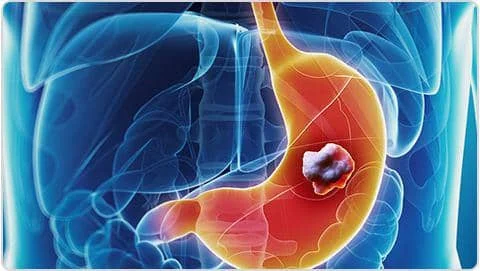STOMACH CANCER
WHAT IS STOMACH CANCER
Stomach cancer, also known as gastric cancer, refers to the development of malignant tumors in the lining of the stomach. It is a relatively common type of cancer that can affect any part of the stomach. Symptoms may include persistent abdominal pain, indigestion, heartburn, nausea, loss of appetite, unintentional weight loss, and vomiting.
Stomach cancer is often diagnosed at advanced stages, but early detection through screenings and prompt treatment are crucial for improving outcomes. Treatment options include surgery, chemotherapy, radiation therapy, and targeted therapies, tailored to the individual’s condition and stage of the cancer.
SYMPTOMS OF STOMACH CANCER
There are some circumstances when you should always see a doctor straightaway for Stomach Cancer. These include if:
- Persistent abdominal pain or discomfort.
- Indigestion or heartburn that does not improve with medication
- Nausea and vomiting, particularly after eating
- Feeling full or bloated even after consuming small amounts of food
- Unintentional weight loss
- Loss of appetite
- Difficulty swallowing or a sensation of food getting stuck
- Fatigue and weakness
- Blood in the stool or black, tarry stools
- Anemia resulting in weakness, fatigue, and shortness of breath



10+ Years Of Experience
Established for over 10 years, Sahast Medisales offers trusted and experienced healthcare services worldwide. Your well-being is our priority.
Quality Treatment
Sahast Medisales: Ensuring quality treatment, we provide exceptional medical tourism services, ensuring your well-being and satisfaction at every step.
Top Hospital Tie Ups
Discover our medical tourism services with exclusive tie-ups with top hospitals in India, ensuring exceptional healthcare and personalized treatment experiences.
CAUSES OF STOMACH CANCER
Years of Experience
Rated On Google
Patients Treated
Active Member
FAQ's
FREQUENTLY ASKED QUESTIONS
Common symptoms of stomach cancer include persistent abdominal pain, indigestion, heartburn, nausea, loss of appetite, unintentional weight loss, vomiting, difficulty swallowing, and blood in the stool.
Diagnosis typically involves a combination of medical history review, physical examination, imaging tests (such as CT scan or endoscopy), and biopsy to examine a sample of the affected tissue. Additional tests, such as blood tests and molecular testing, may also be performed.
Treatment options for stomach cancer depend on various factors, including the stage and extent of the cancer. They may include surgery to remove the tumor, chemotherapy, radiation therapy, targeted therapies, and immunotherapy. Treatment plans are personalized based on individual circumstances.
While it may not be possible to prevent all cases of stomach cancer, certain measures can lower the risk. These include maintaining a healthy diet rich in fruits and vegetables, avoiding excessive salt and processed foods, quitting smoking, reducing alcohol consumption, and seeking prompt treatment for Helicobacter pylori infection.
GET IN TOUCH WITH US!
Your Destination for Exceptional Medical Care and Global Pharmaceutical Solutions.

